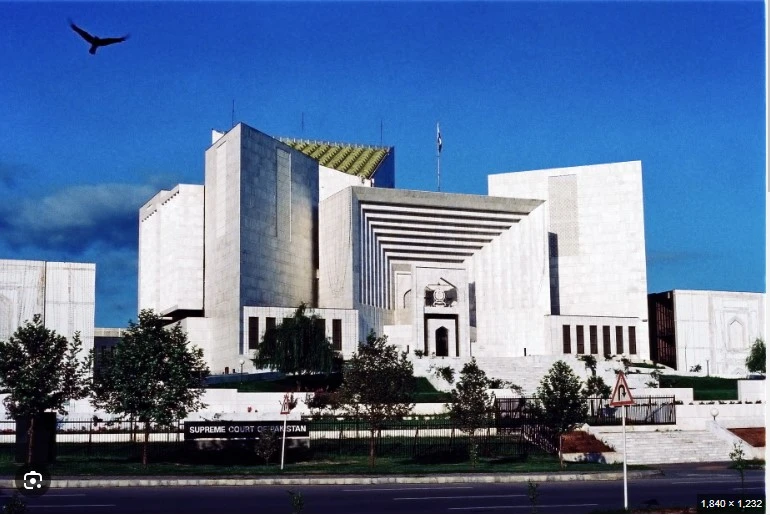SC rejects KP plea for live coverage of NAB amendments case hearing

Stay tuned with 24 News HD Android App

The Supreme Court (SC) on Thursday rejected the request for live coverage of the hearing of intra-court appeals filed against declaring the NAB amendments null and void by four judges to one, reported 24NewsHD TV channel.
A five-member larger bench of the SC, headed by Chief Justice of Pakistan (CJP) Justice Qazi Faez Isa, heard the appeals.
Earlier, differences arose between and Justice Athar Minallah and the CJP over the matter.
While Justice Minallah was of the view that since the case was of public interest and the apex court had to demonstrate its impartiality, the hearing should be live-streamed, the CJP, on the other hand, argued that the case was not of public interest but of a technical nature and hence did not merit live coverage.
PTI founder Imran Khan appeared in the court via a video link.
KP government had requested for live coverage of the hearing.
The government lawyer Makhdoom Ali Khan said it was up to the government to make amendments to the NAB law, and that the judiciary could not interfere in it. “Judiciary cannot interfere in the affairs of the parliament at all,” he said, adding that the SC, while giving its previous decision in the case, did not take into account the facts.
Justice Jamal Mandokhel said he watched social media and read newspapers. “The prime minister had called judges ‘black sheep’,” he said, and added, “How ironical it is that if you are pleased with the court’s verdict, then all is well. But if the judges give a decision against you, you call them ‘black sheep’.”
The attorney general of Pakistan (AGP) said that the PM had not used these words for the present-day judges.
Justice Mandokhel said that the apex court also had complaints against the former prime minister. “How tragic that as soon as there is a change in the government, the party coming to power implicates its opponents in cases,” the judge remarked.
He wondered as to why members of the parliament (MPs) did not settle their differences by themselves. “Why do they drag the apex court into such cases?” Justice Mandokhel questioned.
He was of the view that it was the parliament which had to decide whether to increase the punishment or remit it. “The Supreme Court can only give its opinion whether legislation is in the light of the constitution or against it,” the judge remarked.
CJP Isa asked whether the NAB amendments had benefitted those who were corrupt.
The government lawyer replied in negative and said that in fact these amendments had described the nature of crimes.
Justice Minallah asked whether it was not true that some people were acquitted in graft cases because of these amendments. “Was not Nawaz Sharif, the former prime minister, allowed to walk free courtesy these changes?” he questioned.
The government lawyer went on to say that if the parliament declared that there was no punishment for an offence, it had the authority to do so. “The parliament can also enact laws so that the burden on courts could be reduced,” he said.
Justice Minallah questioned how could a court determine what should be the limit of corruption? “As per the opinion given by a minority of MPs, retired judges and generals should not be exempted from the NAB law,” he remarked.
Makhdoom replied that he held the same opinion. “But the attorney general of Pakistan is in a better position to answer this question.”
“In the case of late President Pervez Musharraf, the Islamabad High Court (IHC) had talked about the NAB taking action against him,” Justice Minallah recalled.
He wondered how could a judge be exempted from the NAB laws.” “Are we sacred cows?” he questioned.
“Nobody is above the law,” the judge said categorically.
The court then adjourned the case’s hearing until next week.
Reporter: Amanat Gishkori
